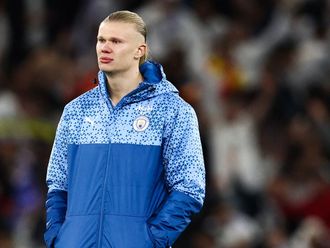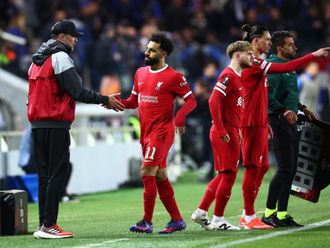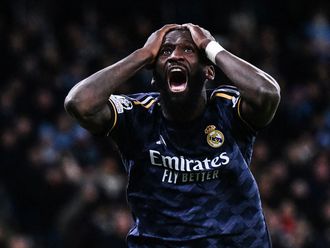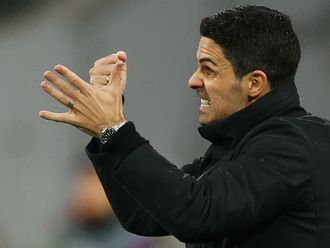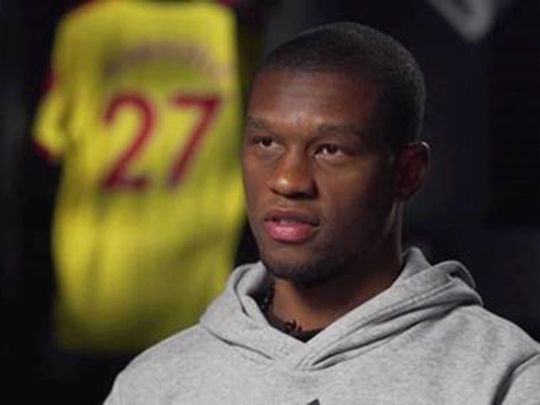
Dubai: Christian Kabasele, a defender with English Premiership side Watford, feels that facing racism online can be much worse than on the ground. The scourge came back to haunt English football when Wilfried Zaha of Crystal Palace was abused by a 12-year-old in a twitter message earlier this week with the offender being later arrested.
Before Sunday’s game, Zaha had shared the screenshots of the messages of the Twitter handle and captioned it, “Woke up to this.” The message apparently from a young Aston Villa fan who threatened to visit Zaha “as a ghost” if he scores against the Birmingham-based club.
Speaking at CNN’s Fighting Racism in Football series, Kabasele - a Congolese-born Belgian professional - explained as to why he felt online racism was worse. “When you’re in the stadium, the fact that you are surrounded by other people, you just disconnect your brain and you do something stupid. But when you write something on Instagram or on Twitter, you have time to think about what you are doing and it’s worse than something happening in a stadium.
‘‘It’s quite incredible that somebody can think about doing this. Like ‘Okay, this player did this so I will go on my phone and send him bananas or a monkey emoji. It’s quite crazy,” he said.
Th 29-year-old footballer said he has received numerous abusive posts on his personal social media accounts during his career and urged the platforms to do more in tackling the issue. Recalling an incident when Instagram deleted one of his own posts highlighting the racist abuse he was facing, Kabasele said: “It’s quite amazing how you can have two kinds of reaction about this. It’s unbelievable… It didn’t happen only once, [it happened] several times. Because that day I receive a lot of [racist] messages and I reported maybe 10, 15 messages and for three of four of them, they said ‘there was no violence in the account that you reported’.”
On his experiences about being racially abused in Bulgaria in his early 20s, Kabasele said: “When you see this kind of thing, you understand that people are really close [minded] and they don’t want to be open to someone different, somebody from another culture, another country... If now you tell me you can go there and work in this kind of country, I will probably say no because I don’t want to live this [experience] again.”
Will he advise a fellow professional to think twice before playing in Bulgaria? “Yes, I think they have to because before signing there, you know how the situation is. You know you will not get the same support as if you play in England or France… To live your dreams sometimes you have to make sacrifices, so to go there you need to be strong in your head and know in advance that you’ll probably be alone against everybody,” he added.


